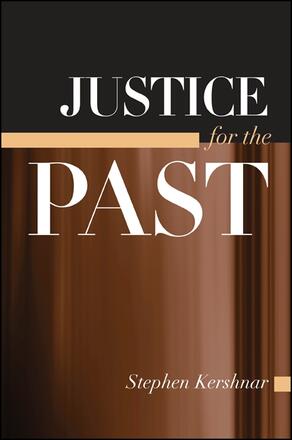
Justice for the Past
Alternative formats available from:
Examines whether race-based programs and slavery reparations are justified.
Description
Among the most controversial issues in the United States is the question of whether public or private agencies should adopt preferential treatment programs or be required to pay reparations for slavery. Using a carefully reasoned philosophical approach, Stephen Kershnar argues that programs such as affirmative action and calls for slavery reparations are unjust for three reasons. First, the state has a duty to direct resources to those persons who, through their abilities, will benefit most from them. Second, he argues that, in the case of slavery, past injustice—where both the victims and perpetrators are long dead—cannot ground current claims to compensation. As terrible as slavery was, those who claim a right to compensation today owe their existence to it, he reasons, and since the events that bring about a person's existence are normally thought to be beneficial, past injustices do not warrant compensation. Finally, even if past injustices were allowed to serve as the basis of compensation in the present, other variables prevent a reasonable estimation of the amount owed.
Stephen Kershnar is Associate Professor of Philosophy at the State University of New York at Fredonia and the author of Desert, Retribution, and Torture.
Reviews
"This is an important and serious critique of both affirmative action and reparations for slavery. Despite the provocative nature of the subject matter, Kershnar writes coolly and objectively. " — Michael Levin, author of Why Race Matters: Race Differences and What They Mean
"Civil rights, affirmative action, and reparations for slavery are burning issues today. Kershnar's bold, clearly reasoned arguments are fresh, insightful, and cogent. " — Louis P. Pojman, United States Military Academy, West Point
"Although I strongly disagree with his views, Kershnar provides the most coherent set of arguments against reparations available in the philosophical literature. " — Albert Mosley, coauthor of Affirmative Action: Social Justice or Unfair Preference?